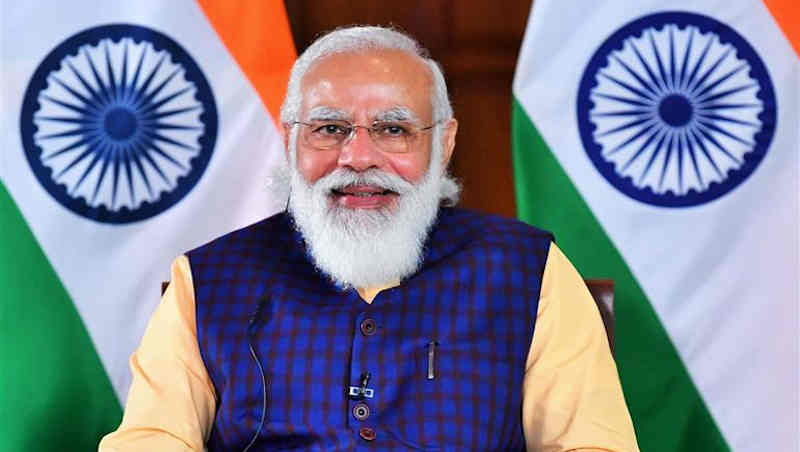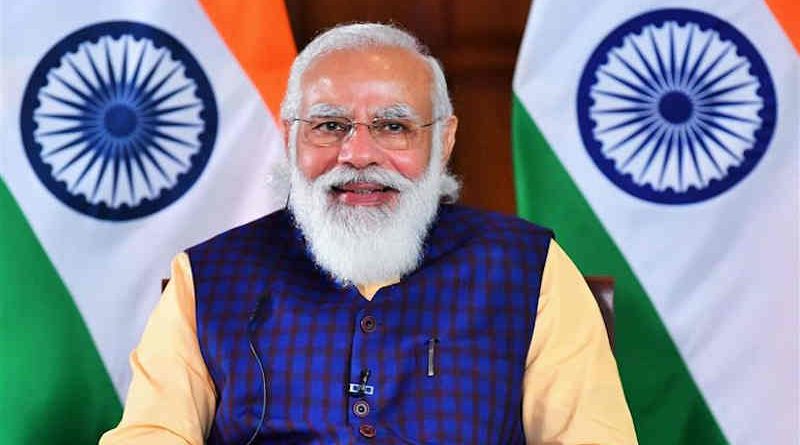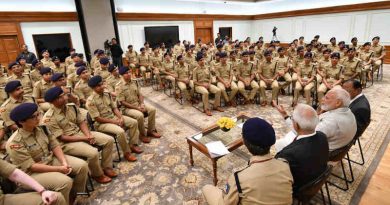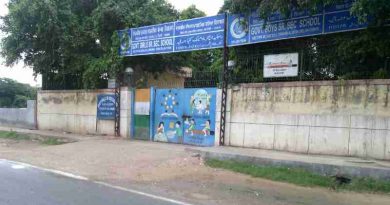PM Modi Downplays the Extent of Corruption in India

As corruption has become the lifeblood of Indian bureaucrats and politicians, no government in India tried to stop corruption. However, the corruption has increased manifold during the past over 6 years of Modi government.
By Rakesh Raman
The Prime Minister (PM) of India Narendra Modi inaugurated the National Conference on Vigilance and Anti Corruption on the theme सतर्क भारत, समृद्ध भारत (Vigilant India, Prosperous India) on October 27 through video conferencing.
The event was organized by the Central Bureau of Investigation (CBI) focusing on vigilance issues aimed at raising awareness and reaffirming India’s commitment to promotion of integrity and probity in public life through citizen participation.
Addressing the conference, Modi said that there is a need for the administrative systems to be transparent, responsible, accountable, and answerable to the public. He added that the biggest enemy against development is any form of corruption.
But Modi has done nothing to stop corruption and he has done everything to encourage corruption. Modi failed to mention in his rant that he himself is embroiled in a number of corruption cases, including the Rafale deal, secretly floated PM-CARES Fund, Sahara-Birla payoff case, and a number of other cases in which his party colleagues are involved.
Apart from bureaucratic and political corruption, now there are also reports of judicial corruption under Modi’s regime, and corruption is the main cause of socio-economic meltdown and increasing unrest in India.
As the focus of the Modi government is on encouraging corruption and ignoring governance, global research reveals that India has almost lost its status of democracy and it has become an autocratic country under Modi.
Political and bureaucratic corruption is the main cause of poverty, pollution, sickness, and hunger in India. The political corruption is so extreme that it is difficult to measure it. However, estimates exist for bureaucratic corruption in the country.
In the book ‘Corruption in India: The DNA and the RNA‘ authored by Professor Bibek Debroy and Laveesh Bhandari, it is said that the public officials in India may be cornering as much as Rs. 92,122 crore ($18.42 billion), or 1.26% of the GDP, through corruption.
The book estimates that corruption is increasing in India by over 100% annually, and most bribery is accrued from the transport industry, real estate, and other public services.
In 2019, the bureaucratic corruption in India through bribery, policy distortion, delinquency, process violation, red-tapism, tax terrorism, etc. is estimated to be $100 billion. The ill-gotten money with Indian politicians is believed to be in excess of $1 trillion.
Data reveals that many of the biggest scandals since 2010 have involved high level government officials and top politicians. These include the 2010 Commonwealth Games scam (US$10 billion), unresolved Rafale scam (US$4 billion), the Adarsh Housing Society scam, the Coal Mining scam (US$27 billion), the Mining Scandal in Karnataka, and the Cash for Vote scams.
According to a new research report, Exporting Corruption, released in October 2020 by the global anti-corruption organization Transparency International, India has come in the list of top corruption exporting countries, under Modi’s rule.
Modi said in his deceptive speech that corruption hurts the development of a country and it destroys the social balance as well as the trust that people should have in the system. And therefore, he said, tackling corruption is not just the responsibility of any single agency or institution but that it is a collective responsibility. He said corruption cannot be dealt with a stand-alone approach.
In his political rhetoric that has no basis, Modi claimed that India is among those few countries where technology is being used more and more to prevent corruption. But it is a blatant lie while Modi is known for telling lies effortlessly.
In fact, today no anti-corruption agency is operational in India. The Central Vigilance Commission (CVC), anti-corruption ombudsman organizations Lokpal and the Lokayukta, state vigilance departments, and the Economic Offences Wings (EOWs) of police are not working properly.
The officials in these so-called anti-corruption outfits are apparently complicit in most corruption cases. Instead of taking action against the corrupt officials or politicians, they protect them or simply ignore the cases.
Moreover, these departments are full of unskilled investigating officers who lack communication skills and do not understand various aspects of white-collar financial crimes. Obviously, when Modi says his government is fighting against corruption, he is lying and downplaying the disastrous impact of corruption in India.
The CBI organizes this National Conference coinciding with Vigilance Awareness Week, which is observed in India every year from 27th October to 2nd November.
The participants at this year’s conference included heads of anti-corruption bureaus, vigilance bureaus, EOWs from States and Union Territories (UTs), CBI officials, and representatives from various central agencies. The inaugural session was also attended by Chief Secretaries and police chiefs of States and UTs.
By Rakesh Raman, who is a national award-winning journalist and social activist. He is the founder of a humanitarian organization RMN Foundation which is working in diverse areas to help the disadvantaged and distressed people in the society.




